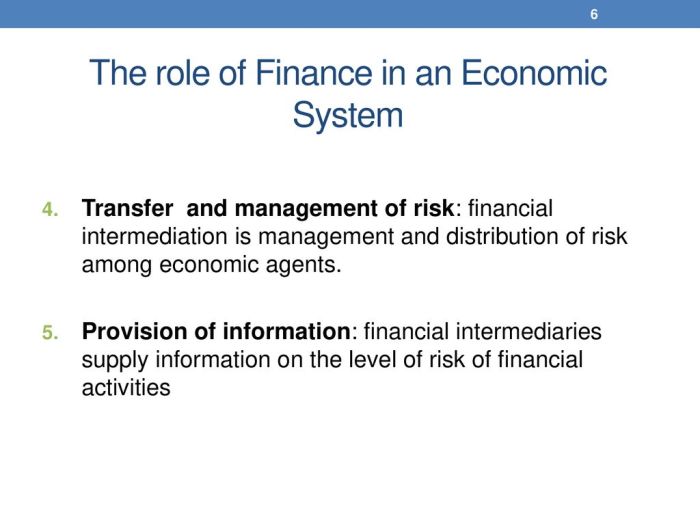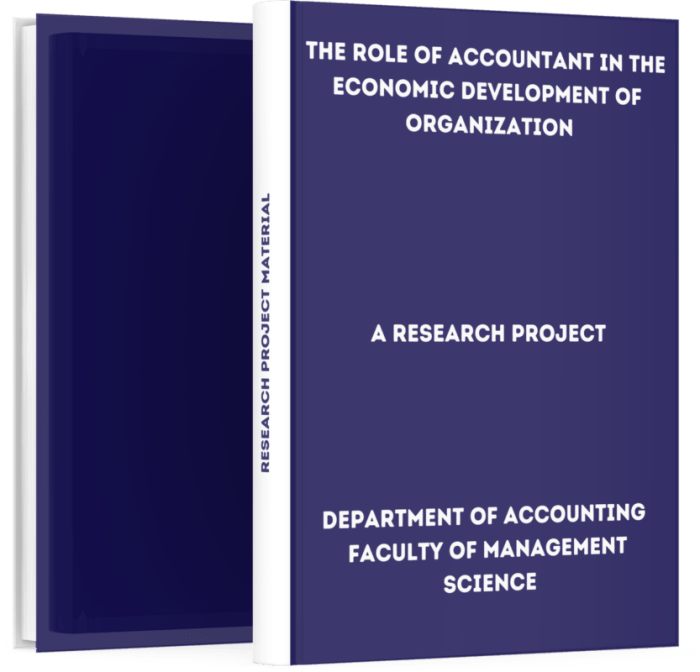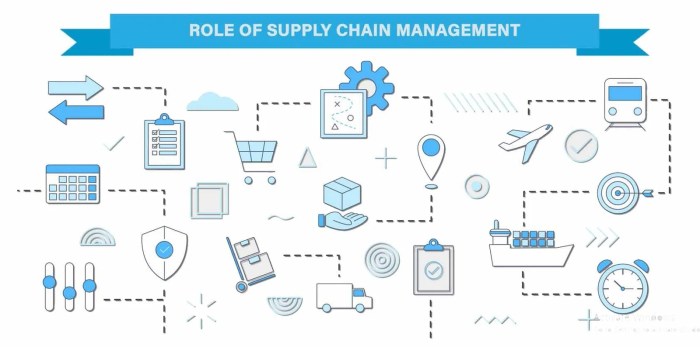The Role of Financial Accountants in Shaping Economic Policy sets the stage for an exploration of the often-overlooked influence financial professionals wield in the economic sphere. This discussion delves into how accurate financial reporting, predictive modeling, and regulatory compliance contribute to sound economic decision-making at both national and international levels. We will examine how the work of financial accountants impacts investor confidence, guides government policy, and ultimately contributes to economic stability and growth. This analysis will consider both the current landscape and the evolving role of financial accountants in an increasingly complex global economy.
From influencing fiscal and monetary policies through the provision of reliable financial data to contributing to economic forecasting models and ensuring regulatory compliance, financial accountants play a crucial, yet often unacknowledged, role. Their expertise in interpreting financial information allows policymakers to make informed decisions, mitigating risks and fostering economic growth. This influence extends to public policy debates, where their insights are essential for navigating complex economic challenges.
The Role of Financial Reporting in Informing Economic Policy
Accurate and timely financial reporting forms the bedrock of sound economic policymaking. Governments rely on this information to understand the health of the economy, make informed decisions about fiscal and monetary policy, and anticipate potential crises. The quality and reliability of this reporting directly impact the effectiveness of these policies, influencing everything from tax rates and government spending to interest rate adjustments and currency valuations.
Accurate and Timely Financial Reporting’s Influence on Government Decisions
Accurate financial reporting provides policymakers with a clear picture of economic activity. Data on GDP growth, inflation rates, unemployment levels, and corporate profits, all derived from financial statements, are crucial inputs into macroeconomic models used to forecast future trends. For example, if inflation is consistently higher than projected based on reported corporate earnings and consumer spending, the central bank might adjust interest rates to curb inflation. Conversely, if economic indicators suggest a recession, governments might implement fiscal stimulus packages based on the data reflecting the severity of the downturn. Timely reporting is essential; delayed or inaccurate data can lead to delayed or inappropriate policy responses, potentially exacerbating economic problems.
Discrepancies in Financial Reporting and Flawed Economic Policies
Discrepancies in financial reporting can have severe consequences. For instance, if companies underreport profits to reduce tax liabilities, government revenue projections will be inaccurate, leading to budget deficits and potentially impacting public services. Similarly, if banks understate their non-performing loans, regulators may underestimate the risk to the financial system, delaying necessary intervention and potentially triggering a financial crisis. The 2008 financial crisis serves as a stark reminder of the dangers of inaccurate financial reporting, where misleading information on mortgage-backed securities masked significant systemic risk. The lack of transparency and inconsistencies in reporting contributed to the severity of the crisis.
Impact of International Accounting Standards on the Global Economic Landscape
The adoption of International Financial Reporting Standards (IFRS) has aimed to harmonize accounting practices globally, improving the comparability and reliability of financial information across borders. This standardization facilitates cross-border investment, improves transparency in international markets, and enhances investor confidence. However, the full implementation and consistent enforcement of IFRS remains a challenge, with variations in interpretation and enforcement across countries potentially leading to inconsistencies in reported financial data. A lack of uniform application could hinder the effective monitoring of global economic activity and create opportunities for regulatory arbitrage.
Hypothetical Scenario: Preventing an Economic Crisis Through Improved Financial Reporting
Imagine a hypothetical scenario involving a major automobile manufacturer. Suppose this company, due to internal mismanagement, is experiencing significant financial distress but continues to report healthy profits through aggressive accounting practices. If regulators had access to more robust and timely financial reporting, including detailed internal audits and stress tests, they might have detected the company’s precarious financial situation early on. This early warning would have allowed for timely intervention, preventing a potential domino effect on related industries (suppliers, dealerships, etc.), thereby averting a wider economic crisis. The improved reporting would allow for proactive measures such as government-backed loans, restructuring, or even controlled bankruptcy, minimizing the overall economic disruption.
Financial Accountants’ Contribution to Economic Forecasting

Financial accountants, through their meticulous analysis of financial data, play a crucial role in predicting economic trends. Their insights, derived from examining corporate financial statements, industry performance, and macroeconomic indicators, provide valuable information for policymakers and other economic stakeholders. This contribution goes beyond simply recording transactions; it involves interpreting financial data to forecast future economic activity.
Financial accountants employ several methods to predict economic trends. One key method involves analyzing financial ratios and trends within companies and across industries. For example, by tracking inventory levels, sales growth, and capital expenditures, accountants can assess the health of various sectors and anticipate potential shifts in economic activity. Furthermore, they analyze macroeconomic data, such as inflation rates, interest rates, and unemployment figures, to understand the broader economic context. This combination of micro and macroeconomic analysis allows for a more nuanced and comprehensive economic forecast.
Methods Used by Financial Accountants for Economic Forecasting
Financial accountants utilize a range of analytical techniques to predict economic trends. These techniques include time-series analysis to identify patterns and trends in historical financial data, regression analysis to establish relationships between different economic variables, and financial modeling to simulate various economic scenarios. For instance, by examining historical data on consumer spending and correlating it with changes in disposable income and interest rates, accountants can build predictive models to forecast future consumer spending patterns. This information is vital for policymakers in developing fiscal and monetary policies.
Policymaker Utilization of Financial Accountants’ Predictions
Policymakers heavily rely on the predictions made by financial accountants to inform their decisions. The insights gained from analyzing financial data help governments understand the impact of proposed policies on various sectors of the economy. For example, forecasts on corporate investment based on financial statements can help policymakers evaluate the potential effectiveness of tax incentives aimed at stimulating business growth. Similarly, projections of consumer spending based on analysis of retail sales data can inform decisions about government spending and monetary policy. These predictions contribute significantly to the formulation of evidence-based economic policies.
Comparison of Forecasting Capabilities
While financial accountants provide valuable economic forecasts, their capabilities differ from those of other economic experts, such as economists specializing in econometrics or macroeconomic modeling. Economists may utilize more sophisticated statistical models and broader datasets, including qualitative factors such as consumer sentiment and geopolitical events. However, financial accountants offer a unique perspective grounded in the detailed financial data of individual firms and industries, providing a granular level of insight often missing in broader macroeconomic models. This complementary approach, combining the micro-level analysis of financial accountants with the macro-level perspectives of other experts, strengthens overall economic forecasting.
Economic Indicators and Financial Accountants’ Contribution
| Economic Indicator | Data Source | Financial Accountant’s Contribution | Impact on Policy |
|---|---|---|---|
| GDP Growth | National accounts data, corporate financial statements | Analysis of corporate profits, investment, and employment trends | Informs fiscal policy decisions, such as government spending and taxation |
| Inflation Rate | Consumer price index, producer price index, corporate cost data | Analysis of pricing trends in various sectors, cost of goods sold | Influences monetary policy decisions, such as interest rate adjustments |
| Unemployment Rate | Labor market statistics, payroll data from companies | Analysis of employment trends within specific industries and companies | Informs labor market policies and social welfare programs |
| Consumer Confidence | Surveys, consumer spending data, retail sales | Analysis of consumer spending patterns and credit utilization | Informs fiscal and monetary policies aimed at stimulating economic growth |
Financial Accountants’ Role in Regulatory Compliance and Economic Stability
Financial accountants play a crucial role in maintaining economic stability by ensuring businesses comply with complex tax laws and regulations. Their expertise in financial reporting and analysis is essential for navigating the intricate regulatory landscape and preventing actions that could destabilize the economy. Accurate and timely financial reporting, facilitated by diligent financial accountants, is the bedrock of a functioning and trustworthy financial system.
The accurate and timely preparation and filing of tax returns is a cornerstone of a stable economy. Financial accountants are responsible for ensuring that businesses comply with all applicable tax laws and regulations, including those related to income tax, sales tax, payroll tax, and other relevant levies. Their work goes beyond simply completing tax forms; it involves a deep understanding of tax codes, interpretations, and potential liabilities. This ensures businesses pay the correct amount of tax, contributing to government revenue and public services.
The Impact of Non-Compliance on the Economy
Non-compliance with tax laws and regulations has far-reaching negative consequences for the economy. Tax evasion, for instance, deprives governments of essential revenue needed for crucial public services like infrastructure development, healthcare, and education. This revenue shortfall can lead to reduced public spending and potentially hinder economic growth. Furthermore, non-compliance erodes public trust in the fairness and efficiency of the tax system, potentially leading to social unrest and instability. Businesses that consistently avoid their tax obligations gain an unfair competitive advantage over compliant businesses, distorting the market and undermining fair competition. This can lead to a decline in overall economic efficiency and productivity. Finally, the cost of investigating and prosecuting tax evasion diverts resources from other important government activities.
The Relationship Between Robust Financial Regulation and Economic Stability
Robust financial regulation, coupled with diligent financial accounting practices, is directly linked to economic stability. A well-regulated financial system fosters investor confidence, encouraging investment and economic growth. Strong regulations provide a framework for transparency and accountability, reducing the risk of financial crises and protecting consumers and businesses from fraudulent activities. For example, the Sarbanes-Oxley Act of 2002 (SOX) in the United States, implemented in response to major accounting scandals, significantly strengthened corporate governance and financial reporting standards, contributing to greater stability in the financial markets. The act introduced stricter rules on corporate responsibility, internal controls, and auditor independence.
Key Regulations and Their Influence on Economic Activity
The influence of financial regulations on economic activity is substantial. Accurate and timely financial reporting is vital for informed decision-making by investors, creditors, and other stakeholders. A clear understanding of a company’s financial health allows for more efficient allocation of capital, leading to greater economic efficiency. Below is a list of key regulations and their impact:
- Generally Accepted Accounting Principles (GAAP): GAAP provides a consistent framework for financial reporting, ensuring comparability and transparency across different companies. This facilitates informed investment decisions and contributes to market efficiency.
- International Financial Reporting Standards (IFRS): IFRS aims to harmonize accounting standards globally, improving the comparability of financial information across international borders and facilitating cross-border investment.
- Securities and Exchange Commission (SEC) Regulations: SEC regulations in the U.S. govern the disclosure of financial information by publicly traded companies, ensuring transparency and protecting investors from fraud. This fosters investor confidence and contributes to market stability.
- Tax Codes and Regulations: Comprehensive tax codes and their effective enforcement are crucial for generating government revenue, funding public services, and promoting economic fairness. They also influence business investment decisions and corporate behavior.
Impact of Financial Accounting Practices on Investment Decisions
Financial accounting practices play a crucial role in shaping investor decisions and influencing capital allocation within an economy. The transparency and reliability of financial reporting directly impact investor confidence, while inconsistencies or misleading information can lead to significant market distortions and hinder economic growth. Understanding the implications of various accounting methods is therefore paramount for both investors and policymakers.
Transparent financial reporting fosters investor confidence by providing a clear and accurate picture of a company’s financial health. This allows investors to make informed decisions, reducing uncertainty and risk associated with investment. When investors trust the information presented, they are more likely to invest, leading to increased capital availability for businesses. Conversely, a lack of transparency or the presence of misleading information erodes trust, potentially leading to capital flight and hindering economic development.
Transparent Financial Reporting and Investor Confidence
Transparent financial reporting, characterized by accurate, complete, and timely disclosure of financial information, is essential for building investor confidence. When companies consistently adhere to high accounting standards and provide clear, understandable financial statements, investors are more likely to perceive them as credible and trustworthy. This heightened trust translates into greater willingness to invest, even during periods of economic uncertainty. Conversely, opaque reporting practices, such as aggressive accounting manipulations or the concealment of material information, can severely damage investor confidence, leading to reduced investment and potentially harming the company’s long-term prospects. The increased scrutiny following major accounting scandals, such as Enron and WorldCom, highlights the significant consequences of lacking transparency.
Examples of Misleading Financial Statements Deterring Investment
Instances of misleading financial statements have frequently deterred investment. For example, if a company consistently overstates its revenue or understates its liabilities, investors may be misled into believing the company is more financially sound than it actually is. This can lead to overvaluation of the company’s stock and ultimately result in significant losses for investors when the truth is revealed. Similarly, the deliberate concealment of significant risks or liabilities can cause investors to underestimate the potential for future losses, deterring investment and potentially leading to market instability. The 2008 financial crisis serves as a stark reminder of the devastating consequences that can arise from widespread misreporting and a lack of transparency in the financial sector.
Implications of Different Accounting Methods on Capital Allocation
Different accounting methods can significantly impact capital allocation. For instance, the choice between different depreciation methods (straight-line versus accelerated) can affect a company’s reported earnings and consequently influence investor perceptions of its profitability. Accelerated depreciation, while potentially reducing tax liability in the short term, might also lower reported earnings, potentially making the company appear less attractive to investors seeking high returns. Conversely, the straight-line method, while potentially leading to higher reported earnings, might not accurately reflect the asset’s actual decline in value over its useful life. This highlights how the selection of accounting methods can influence the allocation of capital towards specific companies and industries. Furthermore, the adoption of International Financial Reporting Standards (IFRS) versus Generally Accepted Accounting Principles (GAAP) can also lead to variations in reported financial information, influencing investment decisions across international borders.
Hypothetical Case Study: Comparing Accounting Practices and Investment Decisions
Consider two identical companies, Company A and Company B, both developing a new technology. Company A uses conservative accounting practices, reporting lower profits initially due to higher depreciation charges. Company B, however, uses more aggressive accounting, reporting higher initial profits by using a lower depreciation rate. Both companies require $10 million in investment for further development. Investors, prioritizing short-term returns, might favor Company B’s seemingly higher profitability, leading to a higher capital allocation to Company B. However, in the long run, Company A’s conservative approach, reflecting a more realistic picture of its financial position, may prove more sustainable, leading to better long-term returns for investors. This highlights how differing accounting methods, even in the absence of fraudulent activity, can significantly impact investor decisions and capital allocation.
Financial Accountants’ Influence on Public Policy Debates
Financial accountants, often working behind the scenes, exert a significant influence on public policy debates concerning economic matters. Their expertise in financial reporting, auditing, and analysis provides crucial data and insights that inform policymakers’ decisions. This influence is achieved through various channels, including direct participation in policy discussions, the provision of expert testimony, and the dissemination of research findings.
Financial accountants contribute to public discourse by offering objective analyses of economic trends and the potential impact of proposed policies. Their understanding of financial statements and accounting standards allows them to assess the feasibility and potential consequences of government initiatives, such as tax reforms, infrastructure spending, or regulatory changes. This expertise helps to ground policy debates in factual data, countering potentially misleading or biased information.
Examples of Financial Accountants’ Influence on Policy Debates
The expertise of financial accountants has demonstrably shaped numerous public policy debates. For instance, during debates surrounding the implementation of new accounting standards, financial accountants have played a key role in explaining the potential impact on businesses and the broader economy. Their detailed analysis of the costs and benefits of adopting new standards has often influenced the timing and specifics of regulatory changes. Similarly, in discussions concerning corporate governance reforms following major financial crises, financial accountants have provided crucial insights into the effectiveness of existing regulations and proposed improvements. Their expertise on internal controls and risk management has been invaluable in crafting legislation aimed at preventing future crises.
Comparison of Influence with Other Stakeholders
While financial accountants’ influence is substantial, it’s crucial to acknowledge that they are not the sole players in policymaking. Other stakeholders, including economists, industry representatives, and advocacy groups, also contribute significantly. However, financial accountants bring a unique perspective rooted in the rigorous analysis of financial data. Their expertise complements the perspectives of other stakeholders, providing a more complete and balanced picture for policymakers. While economists might offer theoretical models, and industry representatives advocate for specific interests, financial accountants offer a practical, data-driven assessment of the financial implications of policy proposals.
A Case Study: The Sarbanes-Oxley Act
The Sarbanes-Oxley Act of 2002 (SOX), enacted in response to major corporate accounting scandals, serves as a prime example of financial accountants’ critical role in shaping legislation. Following the collapse of Enron and WorldCom, the need for stricter accounting regulations became apparent. Financial accountants, through their professional organizations and individual contributions to Congressional hearings, played a significant role in identifying the weaknesses in existing regulations and proposing solutions. Their detailed analysis of the accounting practices that led to the scandals, coupled with their expertise in internal controls and corporate governance, directly informed the drafting and passage of SOX. The act significantly reformed corporate governance and financial reporting standards, demonstrating the power of financial accounting expertise to influence significant legislative changes.
The Future of Financial Accounting and its Influence on Economic Policy: The Role Of Financial Accountants In Shaping Economic Policy
The future of financial accounting is inextricably linked to technological advancements, evolving regulatory landscapes, and the increasing complexity of global economies. Understanding these interconnected forces is crucial for predicting how financial accounting will shape, and be shaped by, future economic policy. This section will explore key emerging trends, potential challenges, and the transformative role of technology in this dynamic field.
Emerging Trends in Financial Accounting and Their Impact on Economic Policy, The Role of Financial Accountants in Shaping Economic Policy
Several significant trends are reshaping the financial accounting landscape. The rise of data analytics and artificial intelligence (AI) is enabling more sophisticated risk assessment and fraud detection, leading to more accurate and timely financial reporting. This improved accuracy can inform more effective economic policy decisions, particularly in areas like monetary policy and fiscal stimulus. The increasing focus on sustainability and environmental, social, and governance (ESG) factors is driving the development of new accounting standards and reporting frameworks. This shift necessitates a broader understanding of non-financial data and its impact on long-term economic value, influencing policy decisions related to climate change and resource allocation. Finally, the globalization of capital markets requires greater harmonization of accounting standards and practices, facilitating cross-border investment and economic cooperation. This standardization will likely lead to greater transparency and comparability in financial information, improving the efficiency of global capital markets and supporting international economic policy coordination.
Challenges Facing Financial Accountants in the Future
Financial accountants will face several key challenges in the coming years. The rapid pace of technological change demands continuous upskilling and adaptation to new tools and techniques. The increasing complexity of regulations, particularly in areas like ESG reporting and data privacy, requires a deep understanding of legal and ethical frameworks. Furthermore, the need for greater transparency and accountability in financial reporting necessitates enhanced data security and robust internal controls. The increasing volume and velocity of data pose significant challenges in terms of data management, analysis, and interpretation. Finally, ensuring the ethical and responsible use of AI and other emerging technologies in financial accounting will be paramount. The potential for algorithmic bias and the need for human oversight in AI-driven decision-making require careful consideration.
The Role of Technology in Shaping the Future of Financial Accounting
Technology is revolutionizing financial accounting, offering both opportunities and challenges. Blockchain technology, for instance, has the potential to enhance the security and transparency of financial transactions, reducing the risk of fraud and improving auditability. AI and machine learning algorithms can automate many routine accounting tasks, freeing up human accountants to focus on higher-value activities such as strategic analysis and decision-making. Advanced analytics tools enable more sophisticated insights into financial data, improving forecasting accuracy and risk management. However, the widespread adoption of technology also raises concerns about data security, algorithmic bias, and the potential displacement of human accountants. Effective implementation requires careful planning, robust security measures, and a focus on upskilling the workforce. The integration of technology into financial accounting will inevitably impact economic policy by enabling more timely and accurate information for policymakers.
A Vision for the Future Role of Financial Accountants in Shaping Economic Policy
Financial accountants will play an increasingly important role in shaping economic policy in the future. They will be key advisors to policymakers, providing data-driven insights into economic trends and risks. Their expertise in financial reporting and analysis will be essential for evaluating the effectiveness of government policies and programs. They will also be instrumental in developing and implementing new accounting standards and regulations that reflect the evolving needs of the economy. This will involve a strong focus on sustainability, transparency, and the ethical use of technology. Furthermore, financial accountants will need to collaborate closely with other professionals, including economists, policymakers, and technology experts, to ensure that financial information is effectively used to inform economic decision-making. The future accountant will be a strategic advisor, not just a record-keeper, contributing significantly to economic stability and growth.
Concluding Remarks

In conclusion, the role of financial accountants in shaping economic policy is multifaceted and profoundly significant. Their contributions, ranging from accurate financial reporting to informed economic forecasting and effective regulatory compliance, are integral to a healthy and stable economy. As the global economic landscape continues to evolve, the expertise and insights of financial accountants will remain indispensable in navigating the complexities of modern finance and informing sound economic decision-making for a more prosperous future. The continued development and application of robust accounting standards, alongside the integration of technological advancements, will further enhance their ability to shape economic policy effectively.
FAQ Corner
What specific skills do financial accountants need to effectively contribute to economic policy?
Strong analytical skills, data interpretation expertise, a deep understanding of accounting standards, and excellent communication skills are crucial for effective contribution.
How do ethical considerations impact the role of financial accountants in shaping economic policy?
Maintaining ethical standards is paramount. Accurate and unbiased reporting is vital to prevent flawed policies and maintain public trust.
What are the potential consequences of inaccurate financial reporting on economic policy?
Inaccurate reporting can lead to misguided policies, inefficient resource allocation, and even economic crises.
How does the increasing use of technology impact the role of financial accountants in this area?
Technology enhances data analysis, forecasting accuracy, and regulatory compliance, increasing efficiency and effectiveness.
Examine how Top Tax Mistakes Small Business Owners Make can boost performance in your area.





